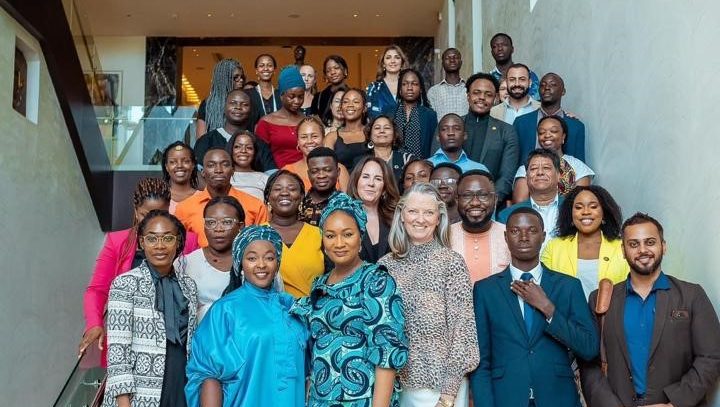The Power of Youth-led Change in Clean Cooking
On January 11, the Clean Cooking Alliance (CCA) hosted an interactive, intergenerational webinar, “Building CCA’s Youth Engagement Strategy.” The webinar marked the conclusion of a six-month youth consultation process to inform CCA’s youth engagement strategy, which will be launched in spring 2023.
Young people increasingly recognize clean cooking as a cross-cutting solution to today’s global climate and development challenges, and, more than ever, they are taking action to improve the present and protect their future. All stakeholders across the clean cooking ecosystem must leverage this momentum and work with young people as allies toward achieving universal access to clean cooking. Listening to youth voices on their challenges and needs is essential for designing relevant programs that positively impact future generations while helping today’s youth act and lead on clean cooking in their countries and communities.
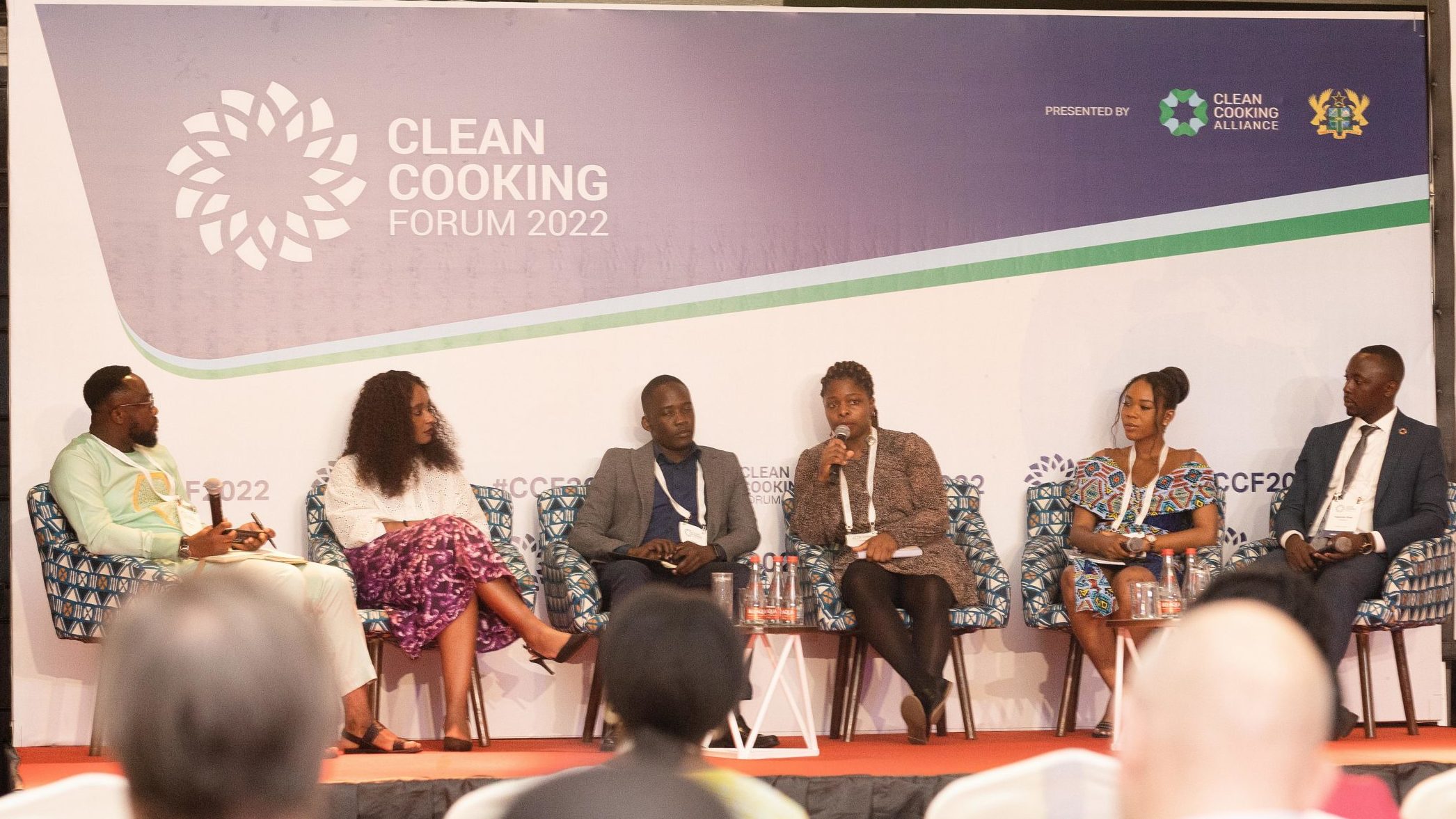
Through an extensive survey for both individuals and youth organizations, discussions with existing and prospective youth partner organizations, and this month’s webinar, CCA is listening carefully to what youth want and need to meaningfully participate in inclusive clean cooking transitions.
Young people bring fresh energy, initiative, ideas, and vision for a better future. They have applicable, creative, and innovative solutions but often lack reliable access to youth-inclusive opportunities to participate as equitable stakeholders across the clean cooking ecosystem.
CCA’s webinar featured an impressive line-up of youth leaders, entrepreneurs, and youth-focused organizations, and focused on three main themes emerging from the consultation: empowering youth, promoting youth-inclusive opportunities, and fostering youth leadership and innovation.
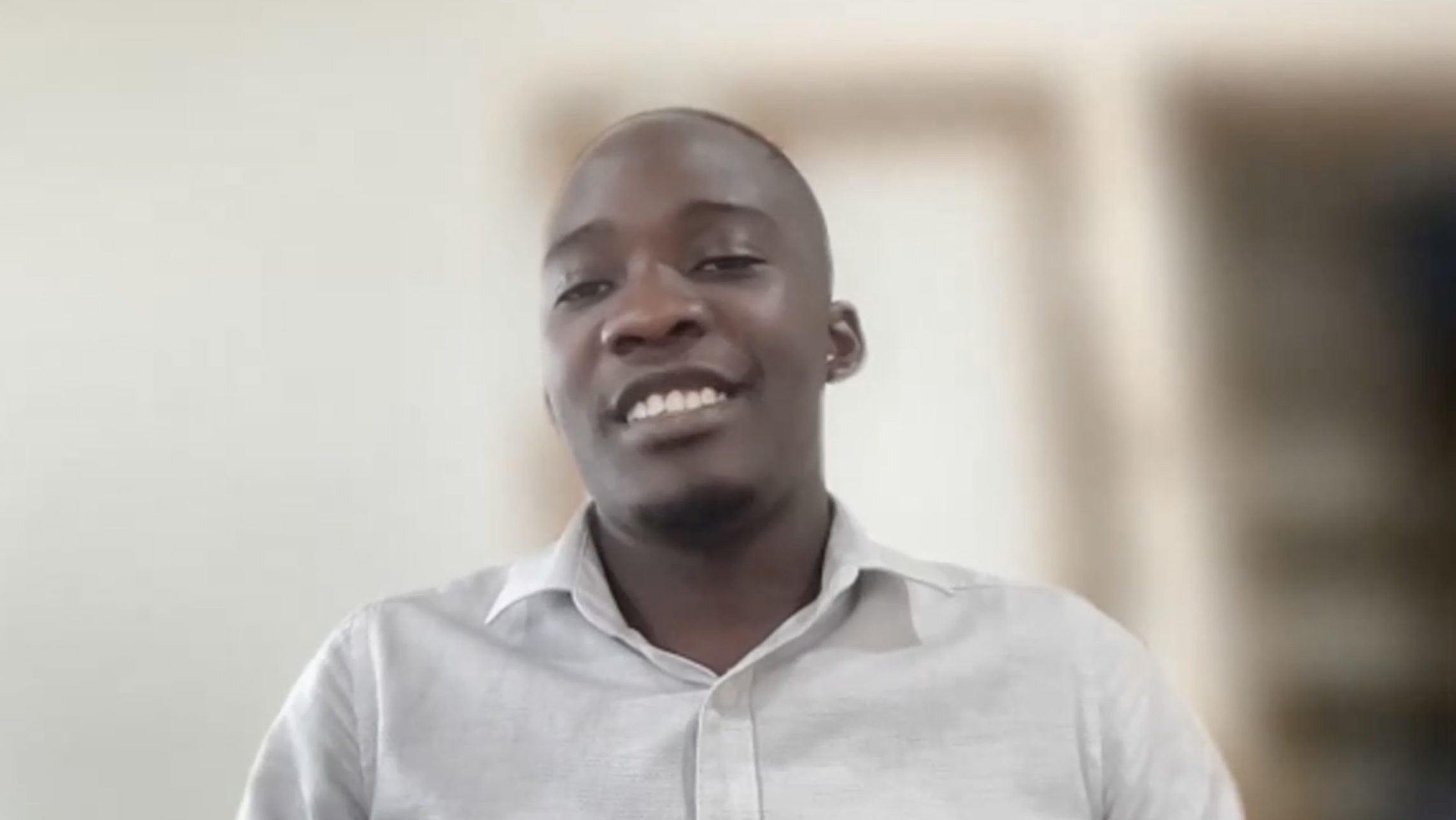
The first panel discussion, Empowering Youth, highlighted the need for professional development, building technical expertise and strengthening entrepreneurial skills to support youth in the clean cooking ecosystem. Youth leaders including Kakembo Galabuzi Brian (Regional Youth Focal Point Sub-Saharan Africa, WMO), Concepta Atieno Ojwang (Founder, Keyo Technovation), and Ben Odongo (Youth Fellow in Energy, Climate Champions Team), shared their first-hand experiences starting out in the clean cooking sector.
As Galabuzi Brian elaborated, it is essential to build a holistic support system, particularly for the most vulnerable youth from the least developed areas. Such support should include “the development of entrepreneurial skills to start and run a business; building necessary technical expertise to develop and distribute clean cooking technologies; as well as increasing access to market and investment opportunities for youth businesses.”
Widespread and inclusive learning, training, and development opportunities are crucial for empowering young changemakers in clean cooking. Youth need consistent and equitable opportunities for knowledge building, skills development, and funding to create, develop, and scale clean cooking solutions. With more than 70 million unemployed young people worldwide and about 244 million children and youth out of school, these opportunities need to ensure representation and benefits for the most vulnerable youth, but this will not happen on its own.
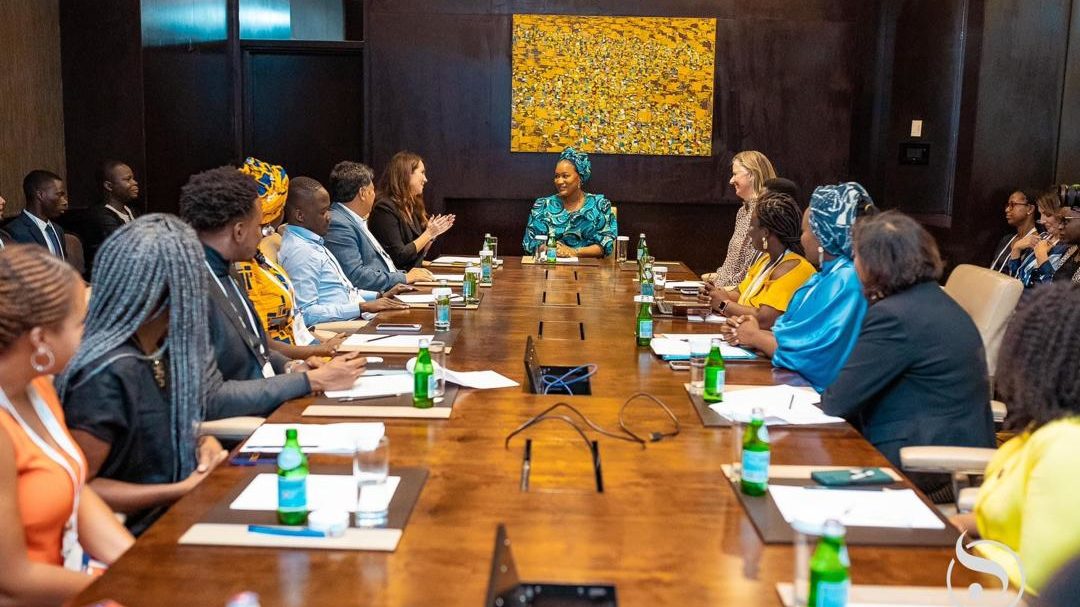
The next panel, Promoting Youth-Inclusive Opportunities, aimed to better understand the role of youth-inclusive policies, funding, and research in creating inclusive opportunities to increase youth engagement. Esther Wanza (TechWomen Fellow and Ban Ki-Moon Global Citizen Fellow), Inés Yábar (Lead Next Generation Fellow), and Shakti Ramkumar (Director of Communications and Policy, Student Energy), engaged in a fruitful discussion on obstacles and solutions for creating youth-inclusive opportunities in clean cooking.
Ramkumar stressed the need to support young people to invest their time in problem identification, doing community outreach, and engaging with community members to understand the nuances of clean cooking challenges in their communities. Ramkumar also warned that “difficulties in accessing early financing are a major barrier for young people, preventing them from trialing clean cooking solutions piloted in their communities and monitoring the success of these initiatives.”
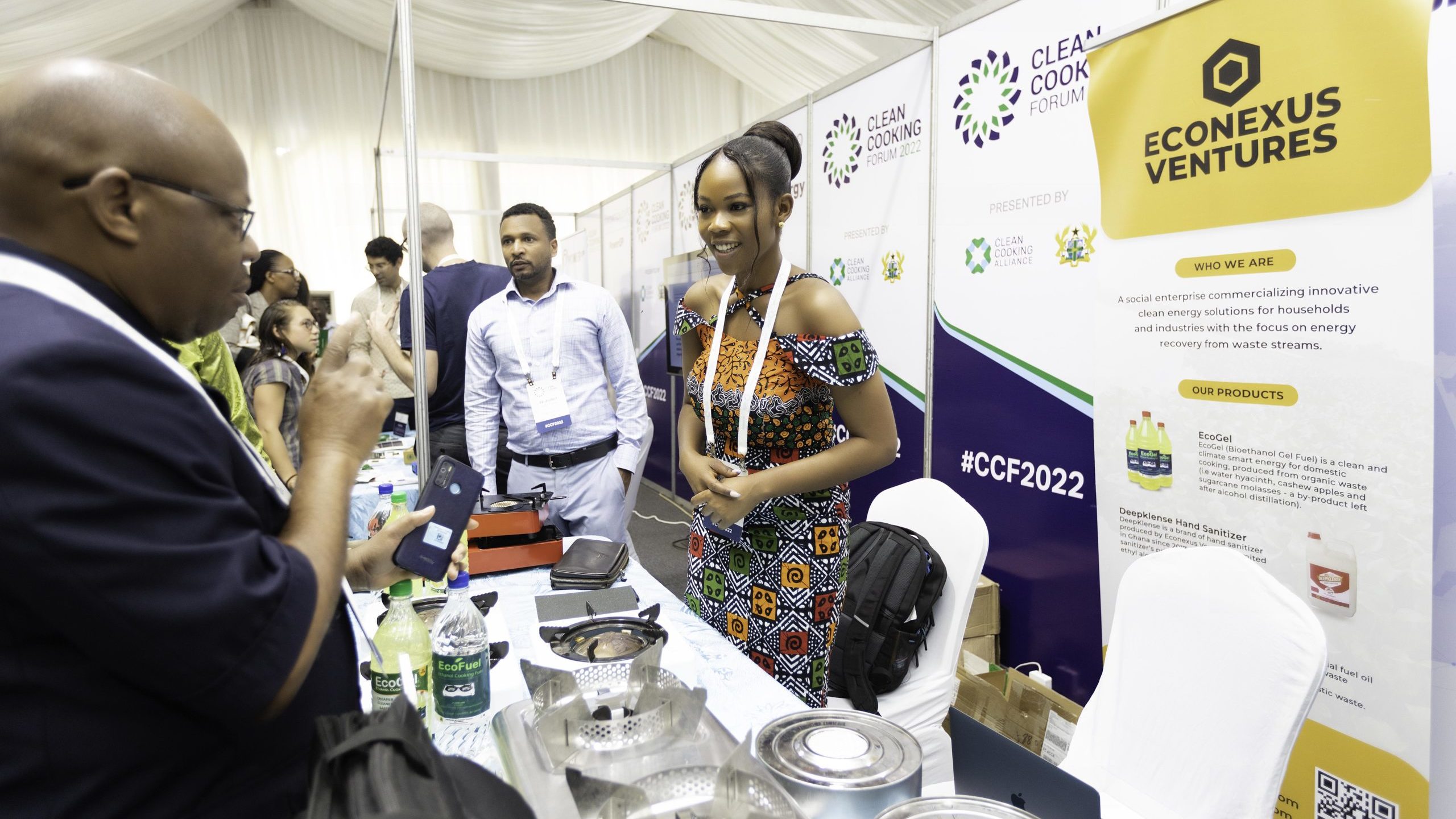
The final panel, Fostering Youth Leadership & Innovation, featured youth entrepreneurs Patience Alifo (Co-Founder & Business Development Manager, Econexus Ventures Ltd.) and Granny Lesiamang (Managing Director, Clauseph Enterprises), who discussed the importance of fostering youth leadership in clean cooking and increasing youth participation in multi-stakeholder governance to elevate youth voices.
Lesiamang spoke about the novelty of capturing the clean cooking market in her country, Botswana. While she feels lucky to be part of a generation that has “better access to information and opportunities, the internalization of bias against female entrepreneurs is still an issue.” In her experience, “women entrepreneurs often second-guess their contributions, decisions, and inputs.” She further highlighted the importance of virtual communities, resources, mentorships, and support systems for women entrepreneurs to access relevant opportunities and strengthen leadership skills.
The webinar also featured leading youth-focused organizations, GirlUp and UNICEF, who are working together with CCA. Lisa Nyamadzawo (Climate, Energy and Environment Specialist at UNICEF) highlighted the role of education: “Education will be instrumental in engaging young people in clean cooking. This can be done through formal or informal channels, for example developing resources and toolkits on clean cooking, so that young people and the whole society are aware of technologies, benefits, and opportunities that exist.”
Maren Roberts (Senior Associate at Girl Up) emphasized the role of youth and women in climate change action: “It’s clear that youth are hungry to advocate against climate change and are looking for tools, resources, and opportunities to do so. Given that youth today, especially girls and women, will face the impacts of climate change dramatically in their lives, it’s imperative that we are including them in the conversations around climate change, grassroots efforts, community-driven change, and policy strategies to ensure that their perspective and experiences are being accounted for.”
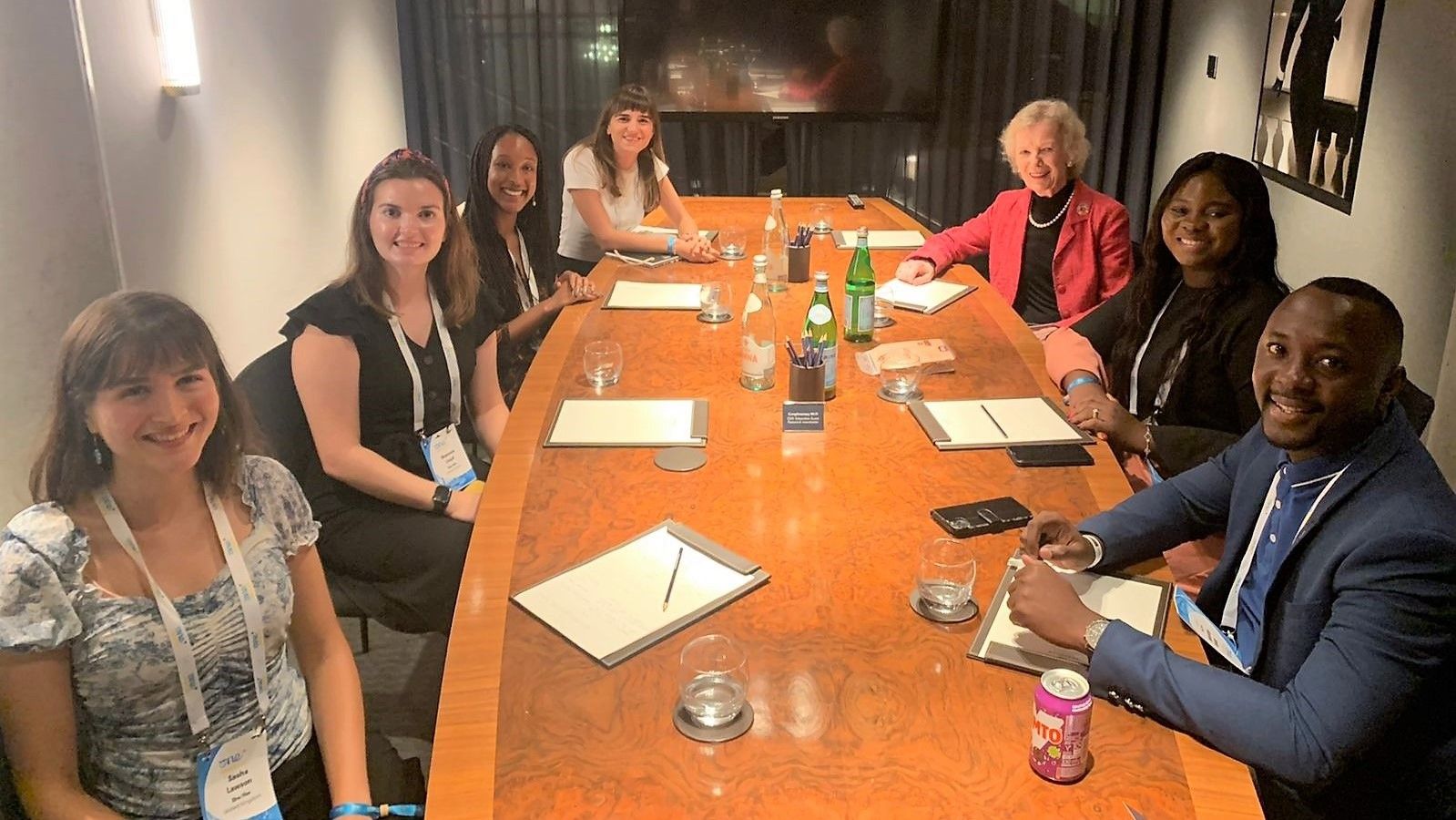
Young people worldwide are already leading on a scale never seen before. They have already proved their critical role in effectively addressing the increasingly complex and interconnected global challenges and CCA is committed to supporting these efforts. From co-hosting the SEforALL Youth Summit, to leading the first ever clean cooking delegation at the 2022 One Young World Summit and supporting twenty global youth to participate in the Clean Cooking Forum 2022 in Ghana, CCA is taking action to raise and elevate youth voices.
Launching this spring, CCA’s Youth Engagement Strategy, directly shaped by these youth voices and inputs from the youth consultation process, is the next step in CCA’s commitment to ensure meaningful, equitable, and sustainable youth engagement in clean cooking.
Learn more about CCA’s Youth Consultation Process and watch CCA’s Youth Consultation Webinar.
